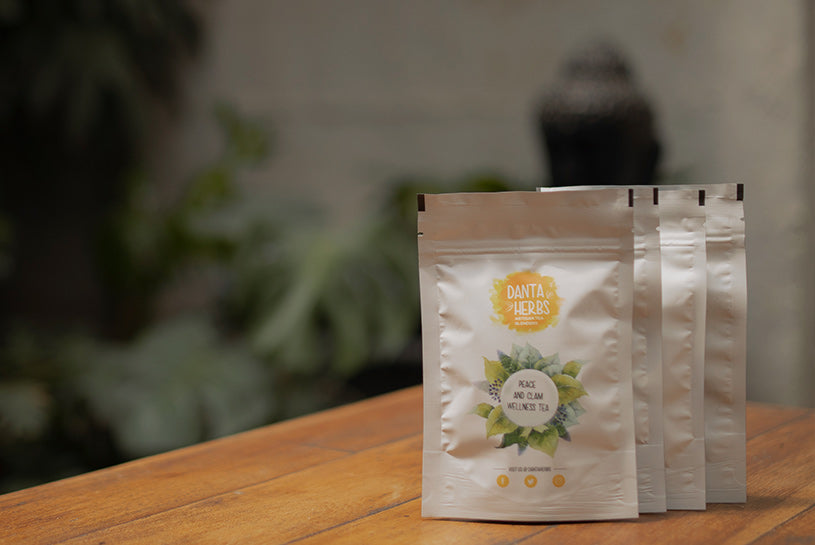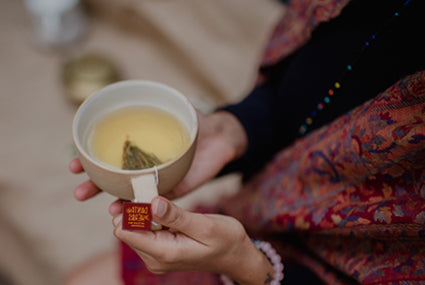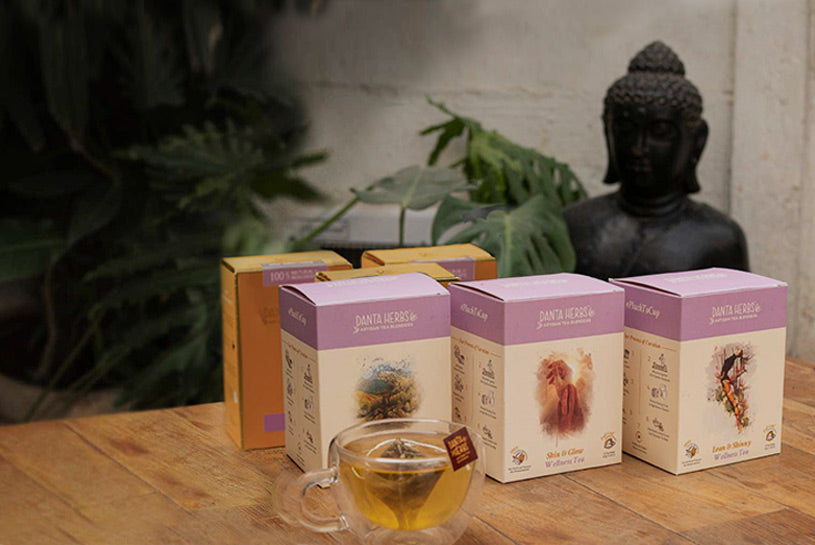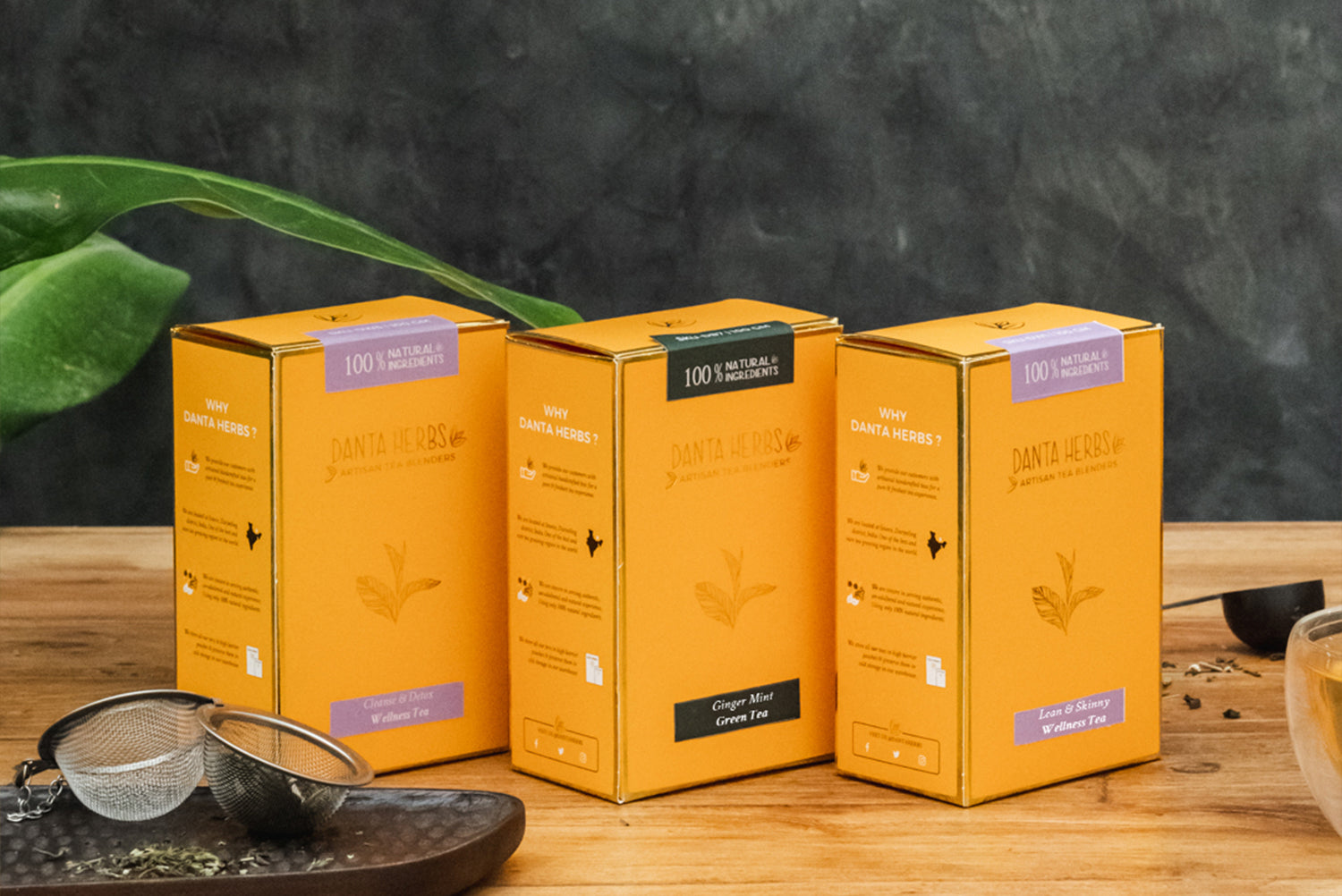How tea is good for health: Health and Tea | Danta Herbs

For long since its discovery, tea has been used for various treatments and is known to have great health benefits. Adding tea to your daily lifestyle could add a great value to your health. Here are some key health benefits of tea for your body and mind:
Antioxidants: Tea contains antioxidants that help slow down aging and help you to regenerate cells and repair them. Some studies suggest that this property of tea may even prevent some kinds of cancers.
Hydration: Contrary to the popular belief that caffeinated drinks dehydrate you, tea has been shown to actually be healthy and hydrates you while providing you antioxidants.
Calm and Alert: While tea calms you it also makes your mind more alert. Studies have shown that amino acid L-theanine found in tea plant alters the attention networks in the brain.
Lowered Stress: Tea lowers stress hormone levels, especially black tea.
Eases headaches, nervous tension and insomnia: Red tea is known to have many relaxing effects on the mind.
Protects Bones: Studies show that regular tea drinkers have stronger bones than non-drinkers which can be attributed to the phytochemicals in tea.
Lowered Cholesterol: Regular consumption of tea along with a low-fat diet can bring the bad cholesterol levels lower by 16% when compared with those consuming low-fat foods alone.
Lowered Blood Pressure: Consumption of green or oolong tea everyday can reduce your risk of high blood pressure by up to 50%.
Digestion and Inflammation: Tea contains high levels of tannins that helps in digestion. To consume tea post a meal can prove beneficial. It further helps you keep your gut in a healthy state as the polyphenols in green tea reduce inflammation in the intestines.
Metabolism: A healthy metabolism helps one keep excess weight gain at bay. Tea helps your metabolism. Green tea boosts your metabolic rate slightly that helps you burn an additional 70-80 calories a day.
Oral health and hygiene: Tea helps you keep away bad breath issues. A study suggests that polyphenols in tea can help to keep the bad breath causing bacteria in check. Tea also contains fluoride and tannins that prevents tooth decay and reduces plaque buildup.
Skincare: The antioxidant properties in tea have an effect on acne.
Strong Immunity: Tea helps build your immune activity that will help you reduce the risk of cold and cough. It has chemicals called alkylamine antigens which boosts the body’s immune response, and has shown to have an effect on severe infections.
Prevent Diabetes: Some studies suggest that Green tea helps lower the risk of getting Type 2 Diabetes. Tea contains catechin and polysaccharides that have an effect on lowering blood sugar.
CAFFEINE AND TEA
True teas contain naturally occurring caffeine. Tea is known to have varying quantities of caffeine. As a member of the xanthine family, caffeine is odorless and colorless but does have a somewhat bitter taste when submerged in hot water. Caffeine is known to be a mood enhancer.It improves alertness and stimulates metabolism
It’s hard to say exactly how much caffeine is in each cup of tea because it depends on the way the leaves are cultivated and produced.
Caffeine Content of different types of teas:
- White Tea: 10–25 mg
- Green Tea: 25–35 mg
- Oolong Tea: 30–50 mg
- Black Tea: 14–60 mg
Tisanes, or popularly called herbal teas are naturally caffeine free since they don’t contain any leaves from the tea plant. They are a great choice if you’re looking to decrease your caffeine intake or are sensitive to caffeine. Flavored teas may contain small amounts of caffeine since they combine herbal tisanes and true tea bases.
FAQ’s:
- Which tea is good for the heart?
One of the many known benefits uncovered by modern research: High tea consumption leads to a healthier heart. While all four types of tea known as true teas, white, green, oolong, and black, offer myriad health benefits, most studies show that black and green teas are the heart-health leaders.
2. Is milk tea good for health?
Tea, especially black and green varieties, is rich in compounds that act as antioxidants and may help lower blood pressure and cholesterol levels, among other benefits. Some studies suggest that adding milk to tea may inhibit the activity of these compounds, while others have observed the opposite effect.
Which tea is good for the heart?
One of the many known benefits uncovered by modern research: High tea consumption leads to a healthier heart. While all four types of tea known as true teas, white, green, oolong, and black, offer myriad health benefits, most studies show that black and green teas are the heart-health leaders.
Is milk tea good for health?
Tea, especially black and green varieties, is rich in compounds that act as antioxidants and may help lower blood pressure and cholesterol levels, among other benefits. Some studies suggest that adding milk to tea may inhibit the activity of these compounds, while others have observed the opposite effect.




